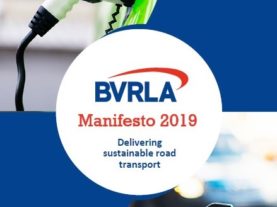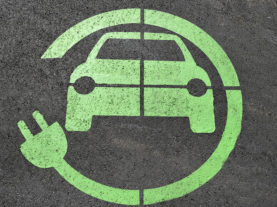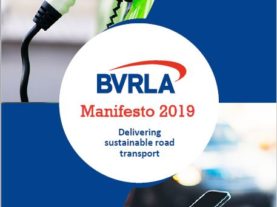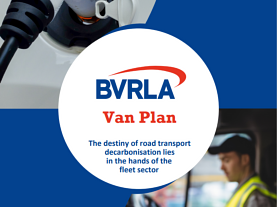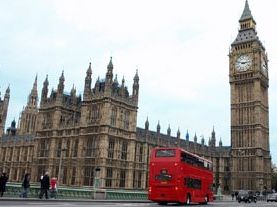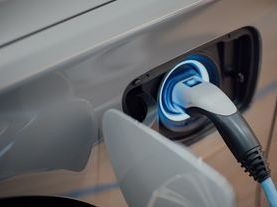On Thursday 12 December voters across the UK will have an opportunity to have their say once again on who represents them. The BVRLA and its members can use this time to ensure candidates and the next government appreciate the key issues facing the fleet sector. The association has produced this campaign page to help members navigate the election.
What do the party manifestos say?
Conservative Party Manifesto
The Conservative manifesto continues along the same vein as the party’s activities over its last few months in government, making announcements predominantly related to the EV charging network. The party has pledged to invest £1 billion to ensure that everyone is within 30 miles of a rapid electric charging station. The manifesto goes further to explain that a Conservative government’s first Budget would prioritise the environment investing in decarbonisation through initiatives such as a national plug-in network and gigafactory for EVs.
The manifesto does not set a target for a sales ban on new petrol and diesel cars but does instead promise to consult on the earliest date such sales could be phased out.
The manifesto also gives a glimpse at what a post-Brexit UK air quality strategy could look like by committing to set up a new independent Office for Environmental Protection which could introduce its own legal targets for air quality.
Labour Party Manifesto
The Labour Party’s manifesto has received significant coverage for its nationalisation agenda, and electric vehicle policy is no exception. The party has pledged to create a new UK National Energy Agency to own and maintain the national grid infrastructure and oversee delivery of decarbonisation targets. Similarly, the existing district network operators would be replaced with 14 new Regional Energy Agencies. This, alongside a promise to invest in EV charging infrastructure and electric community car clubs, and an aim to end the new sales of combustion engine vehicles by 2030, indicates real ambition to shake up the current EV landscape.
The Labour manifesto also makes several promises related to air quality, including the Green New Deal which would aim to achieve the substantial majority of emissions reductions by 2030. The party also commits £250 million to a Green Transformation Fund which would be dedicated to renewable and low-carbon energy and transport amongst other goals. There is also an explicit promise to introduce a new Clean Air Act which will include a vehicle scrappage scheme and Clean Air Zones as well as seek compliance with WHO limits for particulate matter and nitrous oxides.
Liberal Democrat Party Manifesto
The Liberal Democrat manifesto sets out how the party aims to reach a Net-zero climate target by 2045 through supporting the transition to electric vehicles and from private to public transport. The party has promised to enact this transition through taxation, subsidy and regulation, explaining VAT on EVs would be cut to 5% as well as increasing the rate of installation of residential on-street charge points and ultra-fast chargers at service stations. Support is also pledged for innovation in zero-emission technologies, including batteries and hydrogen fuel cells, supplementing government funding with a new Clean Air Fund from industry. The Liberal Democrats aim to ensure that by 2030 every new car and small van sold is electric.
On the commercial vehicle front, the manifesto promises to shift more freight from road to rail, including electrifying lines leading from major ports and amending the current HGV road user levy to take account of carbon emissions.
The party has promised to extend Ultra-Low Emission Zones to ten more towns and cities in England and aims to reduce the number of commuting cars, particularly single occupancy, instead encouraging car-sharing, car clubs and autonomous vehicles for public use.
SNP Manifesto
The SNP manifesto is one of the most detailed in terms of electric vehicle plans. To help with affordability of electric vehicles the SNP has promised to support a diesel scrappage scheme if trading in for ultra-low emission vehicles and to provide an additional £17 million for loan funding to help people with the cost of ultra-low emission vehicles (ULEVs), including second-hand cars. Furthermore, the SNP would seek to re-design vehicle and tax incentives to support industry and business investment in zero emission and sustainable transport choices – such as reduced VAT on bicycles and additional incentives for businesses and individuals to use Ultra Low Emission Vehicles.
This work would at least in part be funded by the ring-fencing of oil and gas receipts, to create a Net Zero Fund, to help pay for the energy transition through investment in areas such as renewable energy, electric vehicles and carbon capture utilisation and storage.
The party has also pledged to campaign for the UK government to align itself with Scottish targets such as bringing forward plans to move to electric vehicles to 2032 and to meet climate change targets of a 75% reduction in emissions by 2035, net zero carbon emissions no later than 2040 and net zero of all emissions by 2045.
Green Party Manifesto
The Green Party has pledged to end the sales of new petrol and diesel vehicles by 2030, but acknowledges that as even electric vehicles pollute, they are not a suitable long-term solution. That said, the party has committed to creating a network of EV charging points across the country, requiring their construction through the planning system and encouraging the private sector to deliver them. By 2025 all existing petrol stations and motorway service stations would be required to offer charging points.
In addition, the party would apply a Carbon Tax on all fossil fuels which would increase the cost of petrol, diesel and shipping fuel. The manifesto also makes reference to the need for more car club schemes to incentivise travel behaviour changes.
Questions for candidates
Local candidates will be door knocking, visiting businesses and taking part in local hustings events over the next few weeks. Below are some useful questions which can be posed to them to find out more about their stance on the fleet industry.
Q. What is your view on the plug-in grant for cars and vans? Will you be committing to secure the grant for the next few years?
Q. Are you supportive of plug-in hybrid cars? These cars can play a vital role as a steppingstone until battery electric cars have the range demanded by consumers.
Q. What plans does your party have to support EV charging infrastructure?
Q. Everyone seems to agree we need to encourage people to drive EVs. What are your plans to ensure there is adequate supply of these vehicles, especially in a post-Brexit Britain?
Q. The upcoming Clean Air Zones will all effect commercial vehicle operators. How do you plan to help HGV and van operators who want or need to upgrade to cleaner vehicles but either can’t afford to or don’t have the options available to do so in the short term?
Q. Will your party be supporting smart use of cars such as car clubs and rentals as part of their work to encourage sustainable transport behaviour?
What does the BVRLA's Manifesto say?
BVRLA members have a unique perspective of the issues facing road transport in the UK and have the purchasing power to tackle them. They have a long track record of working constructively with policymakers in driving down emissions, improving road safety and making road transport more cost efficient and accessible. The association's manifesto puts forward some ideas for future collaboration.
The BVRLA's plan of action for the next Government’s first 100 days:
- Extend the Plug-in Car Grant for pure electric vehicles until 2025. As the electric vehicle market makes significant progress towards cost parity, funding can be reduced and gradually phased out.
- Introduce a revised grant to reboot purchases of plug-in hybrid cars and reverse the dramatic falls in sales. This subsidy should taper off as the market improves.
- Target additional funding for the fleet sector to help with the costs of installing EV charging infrastructure.
- Adjust C02 related taxes to create a more stable environment for company cars, incentivising large fleet buyers to invest in the lowest emitting vehicles.
- Extend Future Mobility Zone funding for another year.
- Create a Mobility Innovation Fund which would be used to help cash and resource-strapped local authorities to work with local transport operators and residents to develop new, integrated mobility services.
- Establish a new, ring-fenced 'Targeted Clean Freight Scrappage Fund' to help commercial vehicle operators upgrade their vans and trucks.

